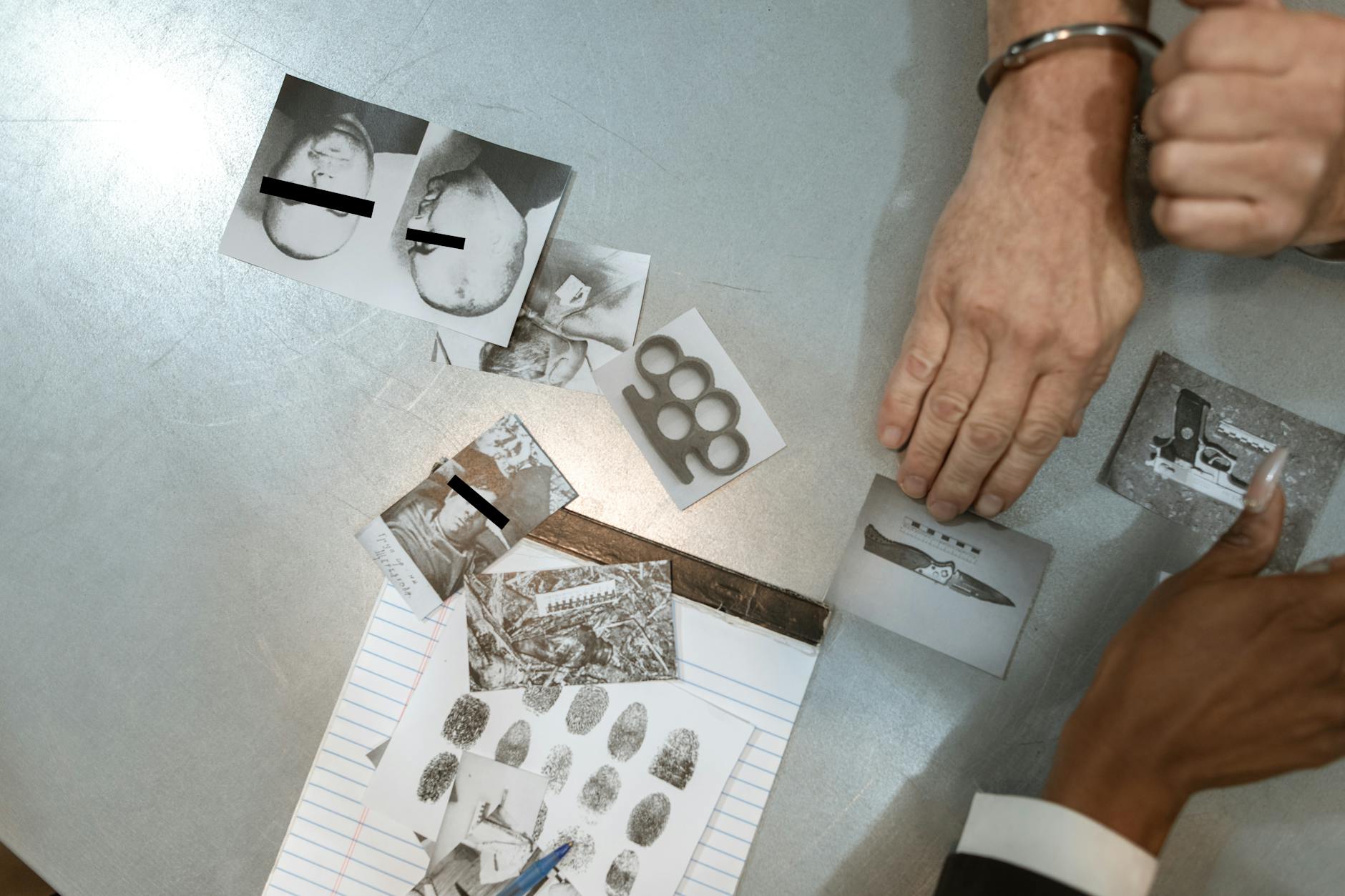How documentaries influence public opinion has become one of the most studied phenomena in media research, and few films illustrate this power more compellingly than Ava DuVernay’s 13th (2016). Released on Netflix at a moment when America was grappling with widespread protests against police brutality and systemic racism, the documentary drew a direct line from the Thirteenth Amendment’s abolition of slavery to the modern mass incarceration crisis. The film’s argument””that a loophole in the constitutional amendment permitted slavery to continue through the prison system””sparked intense national conversation and fundamentally shifted how millions of viewers understood the criminal justice system. The study of documentary filmmaking and its effects on public perception raises critical questions about the responsibilities of filmmakers, the nature of truth in cinema, and the boundaries between advocacy and journalism. Documentaries occupy a unique space in media consumption: they carry the perceived authority of factual reporting while employing the emotional storytelling techniques of narrative cinema.
This combination creates a potent vehicle for changing minds, challenging assumptions, and mobilizing viewers toward action. When a documentary achieves the cultural penetration of 13th””which became one of the most-watched documentaries on Netflix and received an Academy Award nomination for Best Documentary Feature””its influence extends far beyond entertainment into the realm of political and social consequence. By the end of this analysis, readers will understand the specific mechanisms through which 13th shaped public discourse on mass incarceration, the broader patterns of documentary influence on political attitudes, and the ethical considerations that arise when filmmaking intersects with activism. The film serves as a case study in how visual media can reframe complex social issues, challenge dominant narratives, and potentially catalyze policy discussions. Whether one agrees with DuVernay’s conclusions or critiques her methodology, the documentary’s impact on American conversations about race, justice, and imprisonment is undeniable and worthy of serious examination.
Table of Contents
- What Makes 13th a Powerful Case Study in Documentary Influence on Public Opinion?
- The Mechanisms of Documentary Persuasion and Attitude Change
- Measuring Documentary Impact on Criminal Justice Discourse
- How to Critically Analyze Documentary Claims About Mass Incarceration
- The Ethics of Advocacy Documentary and Its Influence on Public Opinion
- The Lasting Cultural Legacy of 13th in Documentary Filmmaking
- How to Prepare
- How to Apply This
- Expert Tips
- Conclusion
- Frequently Asked Questions
What Makes 13th a Powerful Case Study in Documentary Influence on Public Opinion?
The selection of 13th as a case study for examining documentary influence on public opinion stems from several factors that make it uniquely instructive. The film arrived at a cultural inflection point””released in October 2016, just weeks before a contentious presidential election and during the height of the black Lives Matter movement’s visibility. This timing amplified its reach and ensured that its arguments entered an already-charged public discourse. The documentary synthesizes decades of scholarship on mass incarceration into a 100-minute narrative accessible to general audiences, featuring interviews with scholars like Michelle Alexander (author of The New Jim Crow), activists such as Angela Davis, and politicians from both major parties.
DuVernay employs several documentary techniques that maximize persuasive impact. The film uses archival footage to create visual continuity between historical atrocities””lynchings, Jim Crow violence, civil rights-era brutality””and contemporary police killings. This juxtaposition compresses time and implies causation, suggesting that modern criminal justice practices are direct descendants of slavery and segregation. The documentary also makes extensive use of statistics presented through dynamic graphics, including the striking fact that the United States houses 5 percent of the world’s population but 25 percent of its prisoners. These numbers, delivered with visual emphasis, proved highly shareable on social media and became touchstones in subsequent public debates.
- **Historical framing**: The documentary traces a lineage from the Thirteenth Amendment through convict leasing, Jim Crow laws, the War on Drugs, and three-strikes legislation, creating a unified narrative of racial control.
- **Expert credentialing**: By featuring recognized scholars, former politicians, and civil rights figures, the film borrows authority from established institutions and diverse political perspectives.
- **Emotional resonance**: The inclusion of footage showing the deaths of Black Americans at the hands of police creates visceral emotional impact that pure argumentation cannot achieve.

The Mechanisms of Documentary Persuasion and Attitude Change
Understanding how documentaries influence public opinion requires examining the psychological and social mechanisms through which films alter viewer attitudes. Research in media psychology identifies several pathways: cognitive processing of new information, emotional engagement leading to attitude change, narrative transportation that reduces counterarguing, and social influence through subsequent discussion and sharing. 13th engages all these mechanisms simultaneously, creating a multi-layered persuasive experience that operates on conscious and unconscious levels.
Narrative transportation theory, developed by researchers Melanie Green and Timothy Brock, explains how audiences become absorbed in stories to the point where they temporarily suspend critical evaluation. When viewers are transported into a documentary’s narrative, they process claims differently than they would factual arguments presented in academic or journalistic formats. DuVernay’s film maintains narrative momentum through careful pacing, moving chronologically through american history while building toward its central thesis about the prison-industrial complex. The documentary’s structure mimics the arc of a thriller, creating suspense about how each historical chapter will connect to the next and ultimately to the present crisis.
- **Information asymmetry**: Most viewers encounter the documentary’s historical arguments””about convict leasing, ALEC’s role in private prison legislation, or the political strategy behind “law and order” rhetoric””for the first time, creating fertile ground for attitude formation rather than merely attitude change.
- **Emotional memory**: Studies show that emotionally charged information is remembered longer and weighted more heavily in subsequent judgments; 13th’s use of graphic footage creates lasting impressions that anchor its arguments.
- **Source credibility**: The participation of conservative figures like Newt Gingrich, who admits errors in supporting punitive sentencing, provides unexpected validation that can overcome partisan resistance to the film’s predominantly progressive argument.
Measuring Documentary Impact on Criminal Justice Discourse
Quantifying the influence of 13th on public opinion requires examining multiple indicators: changes in survey responses about criminal justice issues, shifts in media coverage framing, legislative developments, and grassroots organizing activity. While isolating the causal effect of any single media artifact is methodologically challenging, circumstantial evidence suggests the documentary contributed significantly to evolving public attitudes on mass incarceration during the late 2010s.
Polling data from Gallup, Pew Research Center, and other organizations documented substantial shifts in public opinion on criminal justice issues during the period surrounding 13th’s release. Between 2014 and 2020, the percentage of Americans who believed the criminal justice system was too harsh increased across demographic groups, including notable shifts among white respondents and self-identified Republicans. While these changes cannot be attributed solely to the documentary, the film’s arguments””particularly its emphasis on the racial dimensions of mass incarceration and the profit motives behind private prisons””became reference points in public discourse that shaped how these poll questions were understood and answered.
- **Academic citation impact**: 13th has been cited in hundreds of academic papers across criminal justice, sociology, film studies, and political science, indicating its penetration into scholarly discourse.
- **Educational adoption**: The documentary is now standard curriculum in many high school and university courses on American history, race relations, and media studies, ensuring its arguments reach successive generations of students.
- **Policy discourse**: Legislative debates over criminal justice reform, including the First Step Act signed in 2018, frequently referenced arguments and statistics popularized by the documentary.

How to Critically Analyze Documentary Claims About Mass Incarceration
While 13th presents a compelling argument, engaged viewers benefit from understanding how to evaluate documentary claims critically without dismissing the genre’s value. The film, like all documentaries, makes editorial choices about what evidence to include, which experts to feature, and how to frame historical events. Recognizing these choices allows viewers to appreciate the film’s artistry while maintaining appropriate epistemic humility about its conclusions. Critical analysis begins with identifying the documentary’s central thesis and then examining the evidence presented in support.
13th argues that mass incarceration represents a continuation of slavery and racial control through other means. This argument synthesizes work from scholars like Michelle Alexander, but the film simplifies complex historical debates for accessibility. Historians have noted that the causal chain from slavery to mass incarceration, while containing substantial truth, elides significant discontinuities and risks flattening the agency of Black Americans throughout this history into a narrative of pure victimization. These critiques do not invalidate the documentary’s core concerns but suggest that viewers should treat it as a starting point for inquiry rather than a definitive conclusion.
- **Source verification**: Cross-referencing the documentary’s statistics with original research allows viewers to assess accuracy and context; the 25 percent figure for world prison population, for example, is well-documented by organizations like the Prison Policy Initiative.
- **Perspective mapping**: Noting which viewpoints are absent from the documentary””such as victims of violent crime, or scholars who emphasize factors beyond race in explaining incarceration rates””helps viewers understand the film’s argumentative boundaries.
- **Emotional calibration**: Distinguishing between emotional responses generated by the documentary’s artistic techniques and logical conclusions supported by evidence helps viewers make more reflective judgments.
The Ethics of Advocacy Documentary and Its Influence on Public Opinion
The power of documentaries to influence public opinion raises ethical questions about filmmaker responsibility, viewer autonomy, and the boundaries between education, journalism, and propaganda. These questions intensify when documentaries address contested political issues and achieve mass audiences through platforms like Netflix. DuVernay has been transparent about her activist intentions with 13th, but this transparency does not resolve debates about whether advocacy documentaries serve democratic discourse or undermine it.
Documentary theorists distinguish between several modes of filmmaking: expository documentaries that explain and argue, observational documentaries that present events without explicit commentary, participatory documentaries that acknowledge the filmmaker’s presence, and performative documentaries that emphasize emotional truth over factual claims. 13th operates primarily in the expository mode, presenting an explicit argument supported by evidence and expert testimony. This mode carries the greatest persuasive power but also the greatest risk of manipulation, as filmmakers control which facts viewers encounter and how those facts are contextualized. Ethical documentary practice requires acknowledging limitations, representing opposing viewpoints fairly, and maintaining accuracy even when accuracy complicates the preferred narrative.
- **Disclosure standards**: Documentaries that advocate for specific policies arguably should disclose funding sources, filmmaker affiliations, and methodological choices, similar to standards expected in journalism.
- **Platform responsibility**: Netflix and other distributors face questions about their role in amplifying potentially one-sided documentaries without providing context or alternative perspectives.
- **Viewer responsibility**: Democratic citizens bear some obligation to seek out multiple perspectives rather than relying on any single source””including compelling documentaries””for their political views.

The Lasting Cultural Legacy of 13th in Documentary Filmmaking
The success of 13th influenced subsequent documentary filmmaking about social justice issues and established templates that later films have followed. The documentary demonstrated that streaming platforms could launch political documentaries into the cultural mainstream, reaching audiences far larger than theatrical releases typically achieve. This distribution model has since been replicated with films addressing policing, economic inequality, environmental justice, and other contested political topics.
DuVernay’s film also contributed to ongoing debates about representation in documentary filmmaking. As a Black woman directing a film about mass incarceration’s impact on Black communities, DuVernay brought lived experience and cultural knowledge to the project that shaped both its content and reception. The documentary’s success helped accelerate industry conversations about who gets to tell which stories and how diverse perspectives might produce different””and potentially more accurate””accounts of social phenomena. Subsequent documentaries on racial justice have increasingly featured directors, producers, and subjects from affected communities, following the path 13th helped clear.
How to Prepare
- **Research the basic facts independently**: Before watching 13th, familiarize yourself with basic statistics on incarceration rates, demographic disparities in the criminal justice system, and the history of the Thirteenth Amendment through neutral sources like the Bureau of Justice Statistics or academic encyclopedias. This foundation allows you to evaluate whether the documentary’s claims align with established data.
- **Identify the filmmaker’s background and intentions**: Ava DuVernay has spoken extensively about her activist motivations and artistic vision for 13th. Understanding her perspective before viewing helps you interpret editorial choices and assess potential blind spots without dismissing the work entirely.
- **Note your pre-existing views**: Write down your current beliefs about mass incarceration, racial disparities in criminal justice, and the American prison system before watching. This self-documentation allows you to track how the documentary affects your thinking and distinguish between genuine learning and emotional manipulation.
- **Prepare alternative perspectives**: Gather materials representing viewpoints the documentary may underemphasize, such as analyses focusing on crime rates, victims’ rights perspectives, or scholars who emphasize factors beyond race in explaining incarceration patterns. Having these alternatives ready facilitates balanced post-viewing reflection.
- **Set aside adequate time for reflection**: Plan to watch the documentary in a setting that allows uninterrupted viewing followed by time for processing. The film’s emotional intensity benefits from contemplation rather than immediate dismissal or uncritical acceptance.
How to Apply This
- **Identify the strongest evidence**: List the documentary’s most compelling claims and trace them to their sources. For 13th, this might include statistics on incarceration rates, historical claims about convict leasing, or evidence about ALEC’s role in criminal justice legislation. Verify these claims through independent research.
- **Articulate the strongest counterarguments**: Steel-man the positions the documentary critiques or ignores. What might defenders of tough-on-crime policies, private prison operators, or skeptics of racial framing say in response? Engaging with these perspectives demonstrates intellectual honesty and deepens understanding.
- **Discuss with people holding different views**: Seek out conversations with people whose political orientations differ from your own and the documentary’s. These discussions reveal how the same evidence can be interpreted differently and highlight assumptions you may not have recognized.
- **Follow up with additional sources**: Read books, academic articles, and journalism that address the documentary’s themes from multiple angles. Michelle Alexander’s The New Jim Crow provides deeper academic context for 13th’s arguments, while works by scholars like John Pfaff offer alternative analyses of mass incarceration’s causes.
Expert Tips
- **Recognize emotional manipulation techniques**: When you feel your pulse quicken or tears forming, note what filmmaking technique produced that response. This awareness allows you to honor your emotional reactions while distinguishing them from logical conclusions.
- **Pay attention to what’s absent**: Documentary arguments are shaped as much by what they exclude as what they include. Ask what perspectives, evidence, or counterarguments the film does not address, and consider why those omissions might have been made.
- **Distinguish correlation from causation**: Documentaries often present sequences of events that imply causation””one historical development led to another””but temporal sequence does not prove causal relationships. Evaluate whether the documentary provides actual evidence of causal mechanisms.
- **Consider the role of platform algorithms**: Netflix’s recommendation algorithm showed 13th to viewers who had watched related content, potentially creating filter bubbles where like-minded viewers reinforced each other’s reactions. Seek out perspectives from outside your usual media diet.
- **Use documentaries as starting points, not conclusions**: The most valuable function of advocacy documentaries is to introduce viewers to issues and arguments they might not otherwise encounter. Treat 13th as an invitation to deeper inquiry rather than a comprehensive final word on mass incarceration.
Conclusion
The study of how documentaries influence public opinion, examined through the lens of Ava DuVernay’s 13th, reveals both the power and the limitations of visual media in shaping political attitudes. The documentary succeeded in bringing academic arguments about mass incarceration to mass audiences, contributing to measurable shifts in public discourse and potentially influencing policy debates. Its techniques””historical framing, emotional engagement, expert testimony, and compelling visual argumentation””demonstrate why documentaries occupy a unique position in the media landscape, combining the authority of journalism with the persuasive power of narrative art. Understanding these mechanisms helps viewers engage more thoughtfully with advocacy documentaries while appreciating their legitimate role in democratic discourse.
Moving forward, viewers who wish to be informed citizens should neither dismiss advocacy documentaries as propaganda nor accept their arguments uncritically. The appropriate response to a film like 13th is engagement: verifying claims, seeking alternative perspectives, discussing with others, and following up with additional research. This engagement honors the documentary’s contribution to public conversation while maintaining the critical independence that democratic citizenship requires. Whether you ultimately find DuVernay’s argument about mass incarceration persuasive or not, the process of evaluating that argument makes you a more capable participant in the ongoing American conversation about race, justice, and freedom.
Frequently Asked Questions
How long does it typically take to see results?
Results vary depending on individual circumstances, but most people begin to see meaningful progress within 4-8 weeks of consistent effort.
Is this approach suitable for beginners?
Yes, this approach works well for beginners when implemented gradually. Starting with the fundamentals leads to better long-term results.
What are the most common mistakes to avoid?
The most common mistakes include rushing the process, skipping foundational steps, and failing to track progress.
How can I measure my progress effectively?
Set specific, measurable goals at the outset and track relevant metrics regularly. Keep a journal to document your journey.


